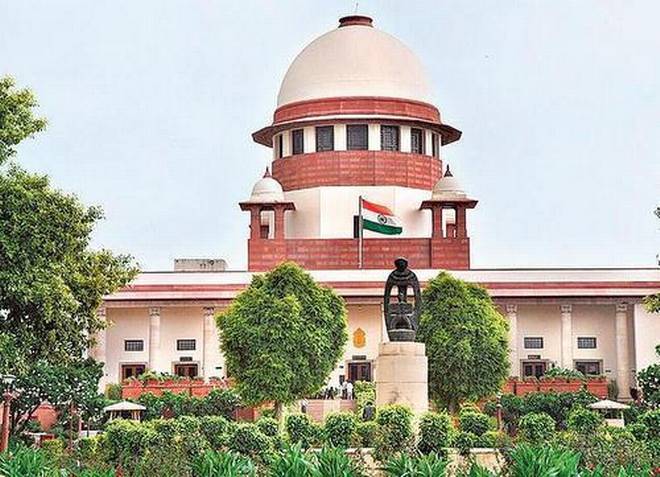NEW DELHI, July 13:
The Supreme Court today dismissed a plea seeking restrictions on devotees in this year’s Amarnath Yatra pilgrimage due to COVID-19 pandemic, saying these issues fall within the “domain of the executive arm of the State”.
The Apex Court said the issue as to whether Amarnath Yatra 2020 should or should not be held is a matter which must be left to the “competence of the local administration” and any decision that is arrived at has to be “based on law and on relevant statutory provisions holding the field”.
A bench headed by Justice D Y Chandrachud observed that the principle of separation of powers requires that administrative decisions “must be taken where they are entrusted, namely by the executive arm of the state”.
The top court passed the order while hearing a plea filed by ‘Shri Amarnath Barfani Langars Organisation’ (SABLO) which had sought a direction to the Centre, Union Territory of Jammu and Kashmir and Shri Amarnathji Shrine Board to restrict access of pilgrims in the Yatra this year in wake of Coronavirus outbreak.
“Entertaining a writ petition under Article 32 at this stage would necessarily involve this court taking over an executive function of oversight over the local administration. We decline to exercise the jurisdiction under Article 32 to take over these powers under the rubric of judicial review,” the bench, also comprising Justices Indu Malhotra and K M Joseph, said.
“We have to respect principle of separation of powers,” the bench orally observed during the hearing, while refusing to entertain the plea which had also sought a direction for ‘live darshan’ of Lord Shri Amarnath Ji Shrine by way of the internet and on television.
In its order, the bench said the decision as to whether a pilgrimage should be permitted and, if it is permitted, the safeguards which should be observed, are matters which fall within the domain of the executive.
“In arriving at a decision, the administrative authorities must bear in mind statutory provisions governing the field and policies and administrative circulars issued in pursuance of statutory provisions. An assessment of the situation will be based on ground realities. This assessment lies in the domain of the administrative functions of the state,” the bench said. (PTI)


